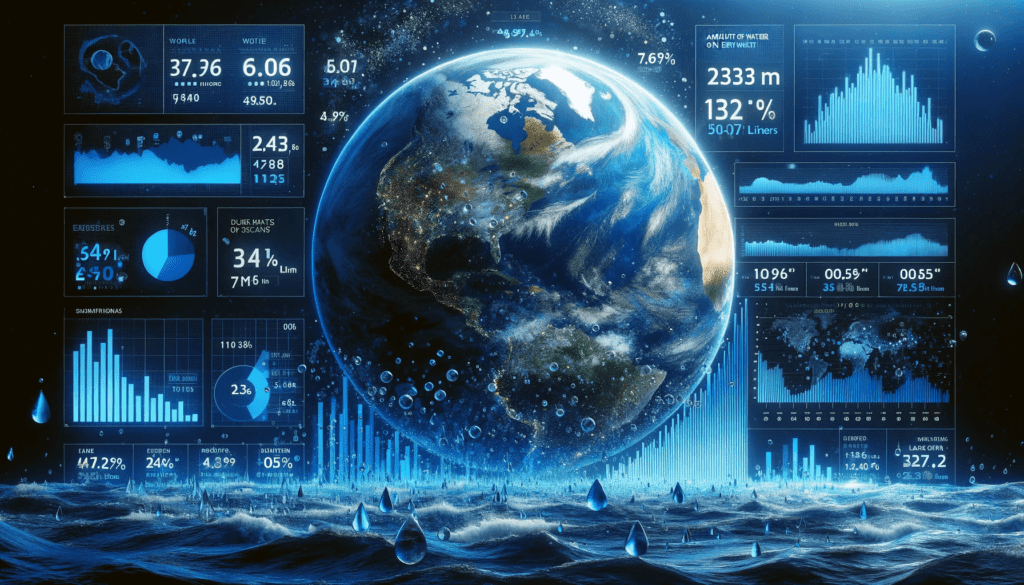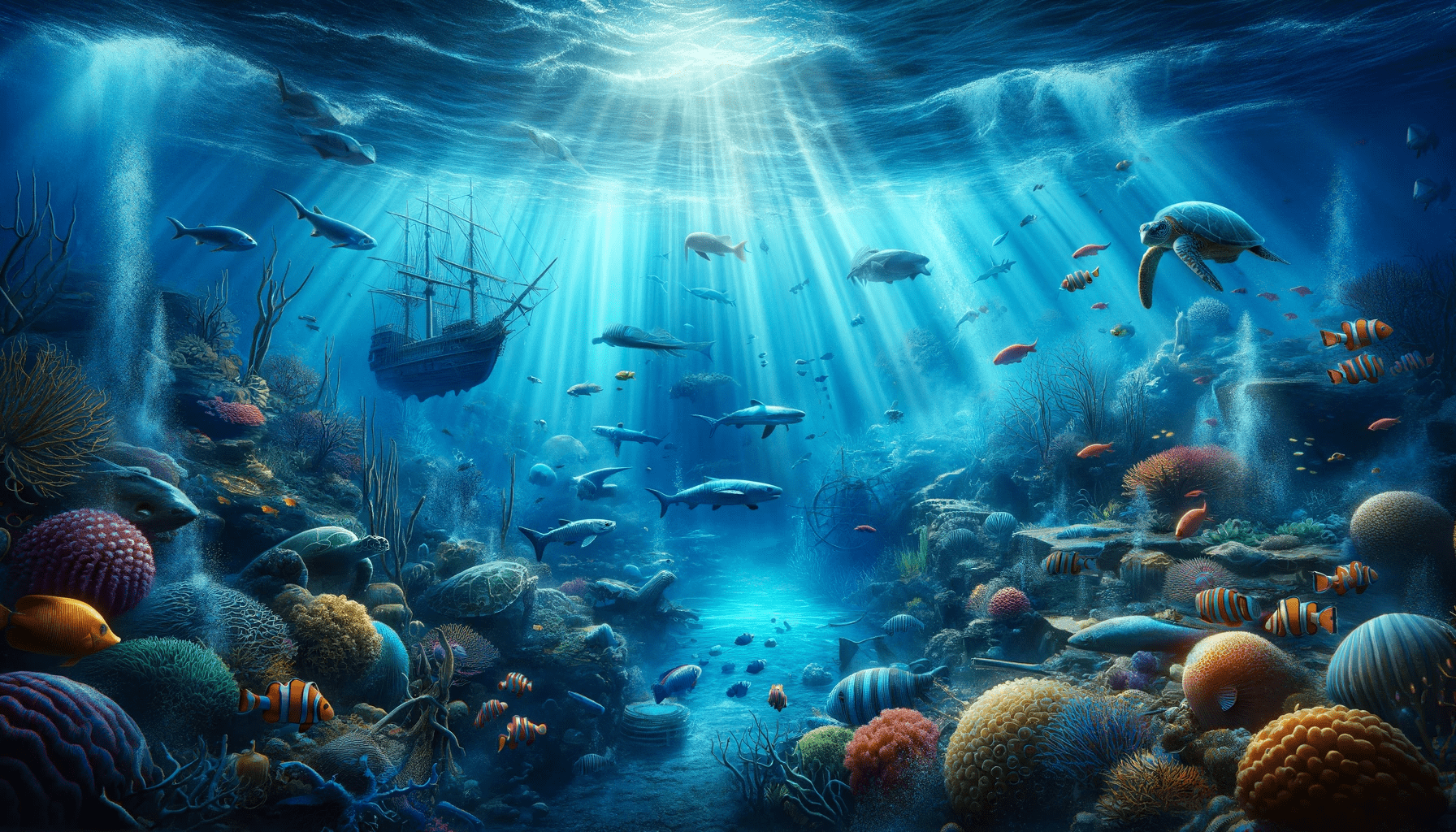The Hidden Treasure: Discovering the Abundance of Water on Earth
Water is a precious resource essential for life on earth. It covers large parts of our planet and plays a crucial role in the ecosystem. In this blog article, we are going to explore how many square meters of water there is on Earth and try to give an estimate of the amount of water in liters.
The total surface area of the earth
Before focusing on the amount of water, it is important to know the total surface area of the earth. The earth’s surface is about 71% water and 29% land. Earth’s total surface area is about 510 million square kilometers.
The surface water
Now that we know that 71% of the Earth’s surface is covered by water, we can convert that to square meters. The area of water on Earth is then about 362 million square kilometers. To convert this to square footage, multiply by 1,000,000. It follows that there are about 362 trillion square meters of water on Earth.
The amount of water in liters
Now that we have an estimate of the total area of water on Earth, we would like to know how much water there is in liters. To calculate this, we must consider the average depth of the oceans, seas, lakes and rivers. The average depth of the oceans is estimated at about 3,800 meters.
To calculate the amount of water in liters, we multiply the total volume of water (362 trillion square meters) by the average depth of the oceans (3,800 meters). This gives us a rough estimate of the total volume of water on Earth.
362,000,000,000,000 m² x 3,800 m ≈ 1.376 × 10^18 cubic meters
One cubic meter of water is equivalent to 1,000 liters of water. So the total volume of water on Earth would be:
1.376 × 10^18 cubic meters x 1000 liters = 1.376 × 10^21 liters of water
Conclusion
Based on estimates, we have determined that there are approximately 362 trillion squared
ante meter of water on Earth is, equivalent to about 1.376 × 10^21 liters of water. These figures give us an idea of the enormous amount of water our planet hosts. It is important to treat this valuable resource responsibly and do our best to preserve and protect it for future generations.
Natural water sources
In addition to surface waters, there are other important sources of water on Earth, such as groundwater, ice sheets, glaciers and marshes. Groundwater is located below the earth’s surface and is an essential source of water for drinking wells and agricultural irrigation. Ice sheets and glaciers contain a significant amount of water in the form of ice and contribute to the total water supply. Marshes are important ecosystems that retain and purify water.
Groundwater is estimated to be about 23.4 million cubic kilometers, equivalent to 23.4 × 10^18 liters of water. Ice sheets and glaciers, mainly concentrated in Antarctica and Greenland, contain about 29.2 million cubic kilometers of ice, equivalent to 29.2 × 10^18 liters of water. Marshes cover about 3% of the Earth’s surface and play an important role in retaining and filtering water.
Combined with surface waters, this gives us a rough estimate of the total amount of water on Earth:
- Surface water: 1.376 × 10^21 liters
- Groundwater: 23.4 × 10^18 liters
- Ice sheets and glaciers: 29.2 × 10^18 liters
- Marshes: A significant amount of water, but specific figures are difficult to estimate.
The importance of water
Water is vital to all life on earth. It supports ecosystems, agriculture, industry and human health. It acts as a solvent, a transport medium and a regulator of temperature on our planet. However, human activities such as agriculture, industry and domestic use put pressure on water availability and quality.
Water management and sustainability
Given the value and importance of water, it is critical to promote responsible water management and sustainable use. Water sources must be protected from pollution, over
moderate use and the effects of climate change. Efficient water use in agriculture, industry and households can help reduce pressure on water resources.
International cooperation and policies also play a vital role in managing water resources. Initiatives such as improving water supply and sanitation in developing countries, conserving rivers and wetlands, and reducing water pollution are of great importance.
Conclusion
Water is a precious resource on our planet, supporting life and essential for sustainable development.



Leave a Reply